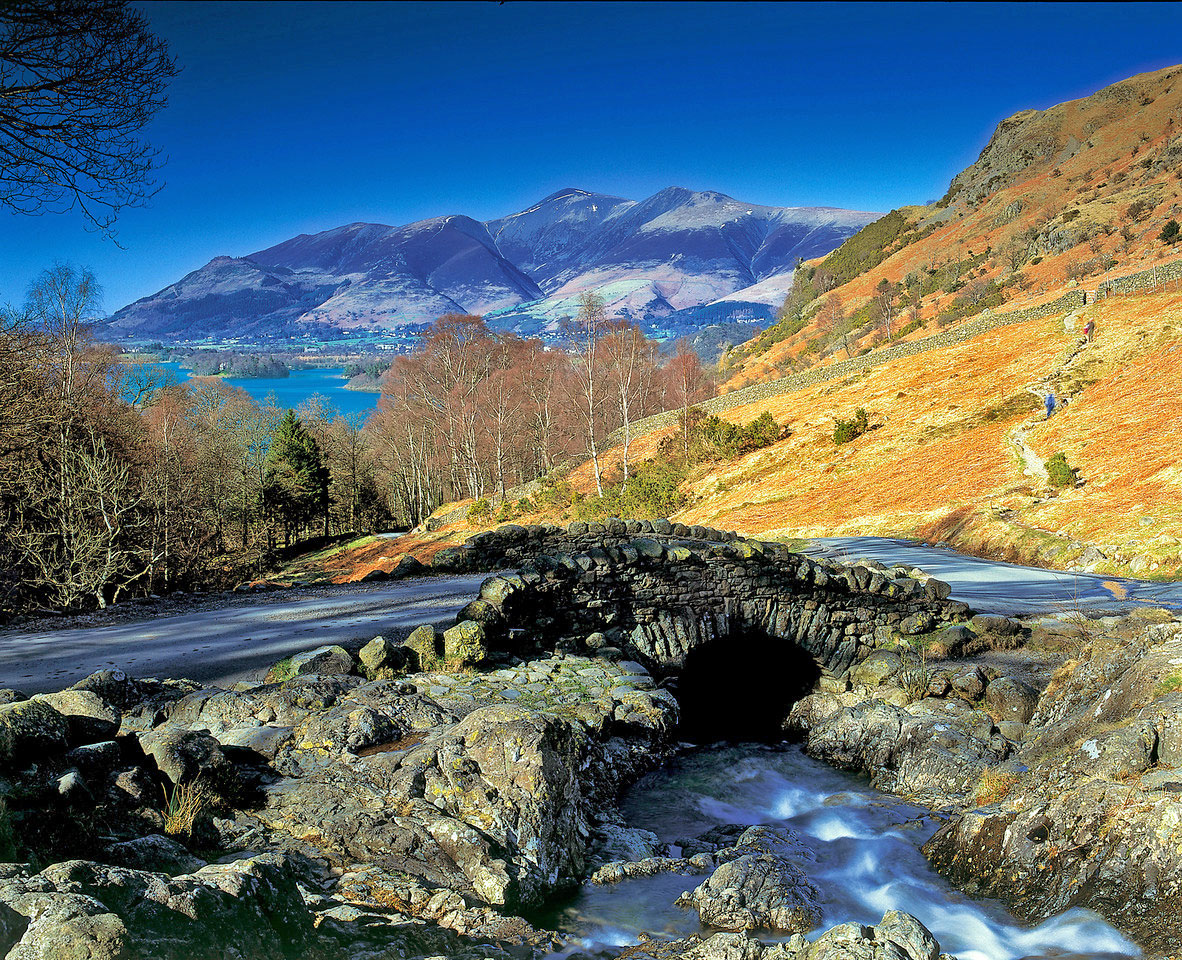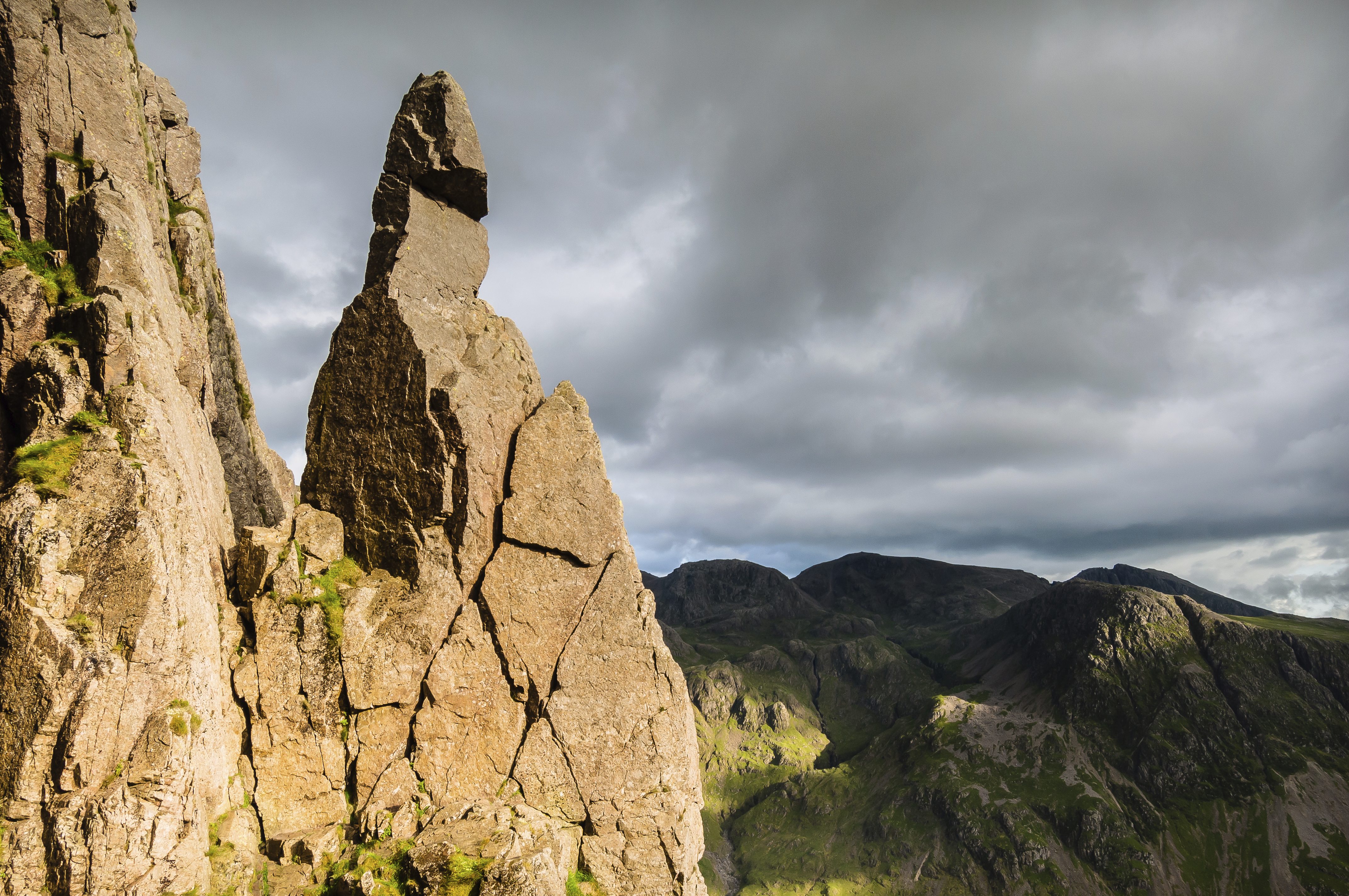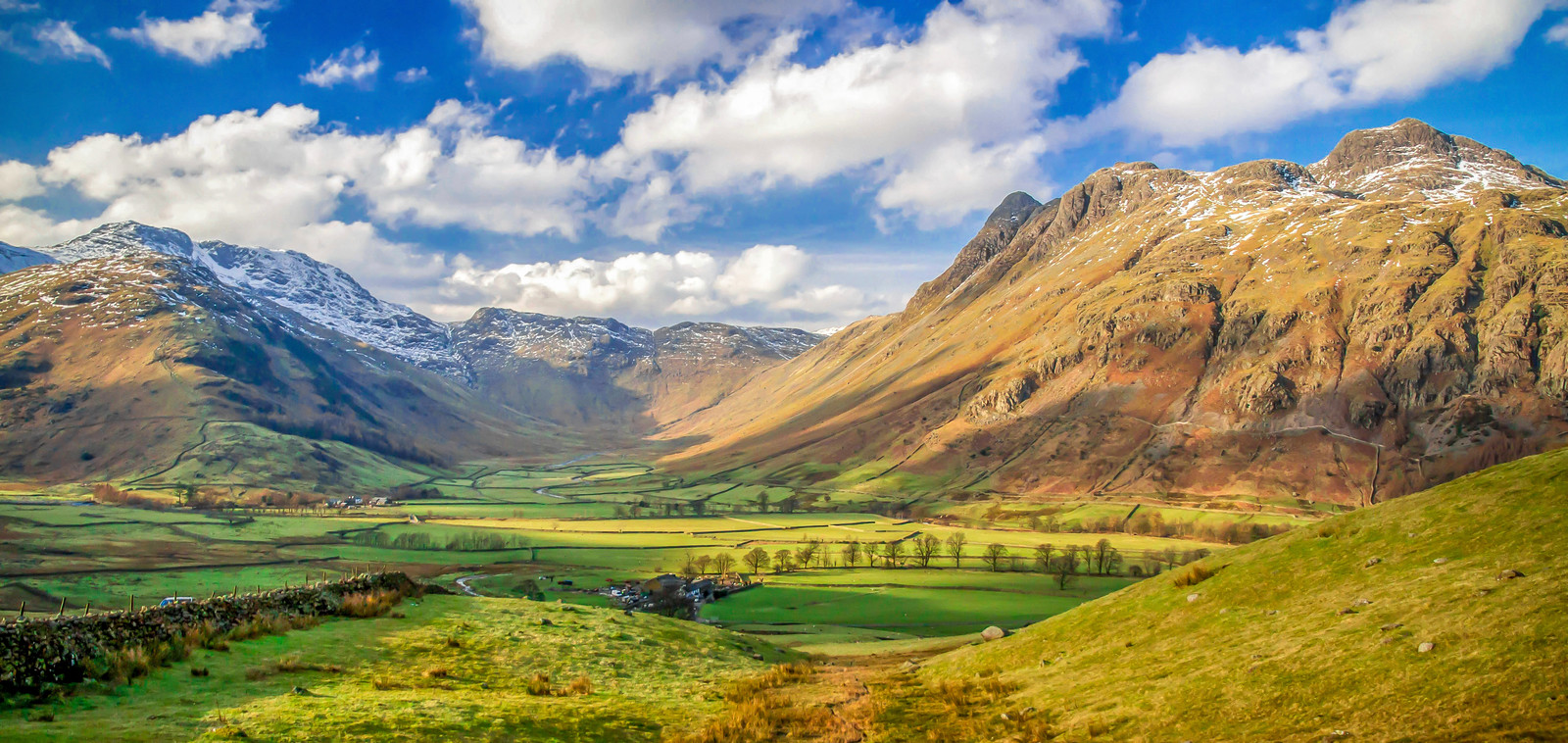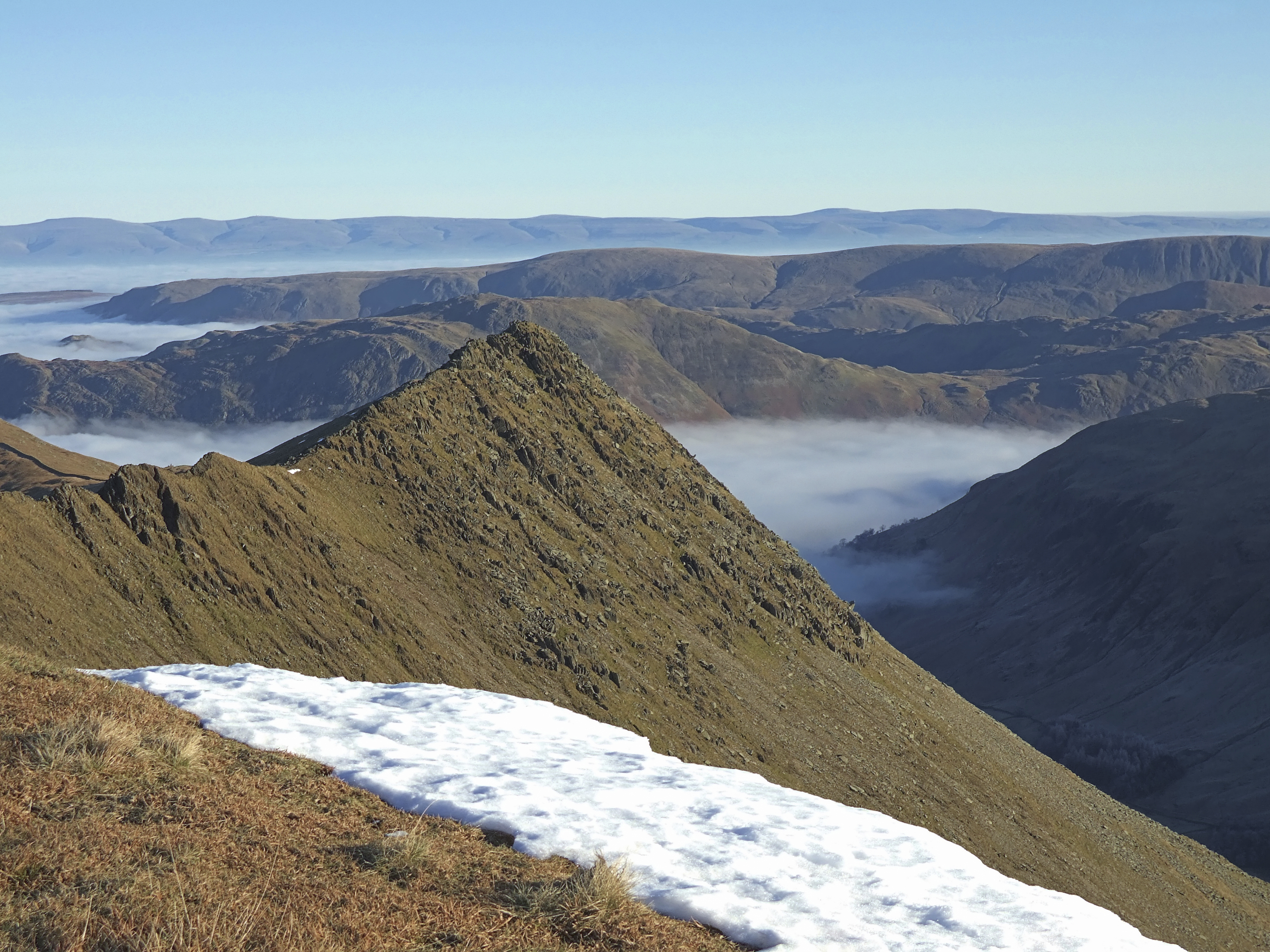Friday, December 11, 2015 by plusonemanager
“Because it’s there” has been called the most famous 3 words in mountaineering. That was, of course, the response of the English mountaineer George Mallory, when he was asked why he wanted to climb Everest.

Looking over Ashness Bridge to Derwent Water and Skiddaw, the Lake District
Since 2003, the United Nations General Assembly has designated, 11th December, International Mountain Day to create awareness about the importance of mountains to life. With over 200 fell tops on our doorstop, including the top ten highest mountains in England, it is only right that we mark the day in some small way.
10 Highest Lake District Mountains

Napes Needle situated on the southern flank of Great Gable
Our Lake District hotels are the perfect base to explore the Lakeland mountains and fells. Find out about the 10 highest Lake District mountains below. Click the bold links to take a 360 degree tour of each summit:
- Scafell Pike at 978 metres (3210 feet)
- Scafell at 964 metres (3162 feet)
- Helvellyn at 950 metres (3114 feet)
- Skiddaw at 931 metres(3053 feet)
- Great End at 910 metres (2986 feet)
- Bowfell at 902 metres (2940 feet)
- Great Gable at 899 metres (2960 feet)
- Pillar at 892 metres (2926 feet)
- Nethermost Pike at 891 metres (2923 feet)
- Catstycam at 890 metres (2920 feet)
10 Surprising facts about Mountains

Langdale Pikes looking towards Bow Fell, The Lake District
Here are ten facts about mountains that might come as a surprise:
- There’s no official definition of how high a hill has to be in order to become a mountain. Some regions specify 1,000 feet, others say 2,000 feet.
- Due to tectonic plate movement, Everest grows 4 mm taller each year.
- Scottish mountains over 3,000 feet are called Munros’. British hills over 150 m are called Marilyns’.
- Mountains provide homes to at least one tenth of the world’s population.
- The tallest known mountain in the solar system is Olympus Mons, located on Mars.
- Eighty per cent of the planet’s fresh water originates in the mountains and all the world’s major rivers are fed from mountain sources.
- Some of the highest mountains on the planet are under the sea.
- Walking is the most popular Lake District visitor attraction with approximately 15 million pairs of feet walking the hills and mountains each year which can be damaging to footpaths. Fix the Fells is a partnership which maintains and repairs the upland paths. English Lakes has, through their Visitor Giving Scheme, donated over £160,000 to this very worthy cause.
- Scafell Pike in the Lake District, the highest mountain in England, was donated to the National Trust by Lord Leconfield in memory of the men of the Lake District who fell in the First World War.
- In alternate weeks between December and April, two Fell Top Assessors run 950 m to the top of Helvelyn each day, producing daily weather reports, checking conditions under foot and assessing risks, including avalanches. This has been a lifeline for many mountaineers. A week’s work sees them running the equivalent distance of almost reaching Everest’s summit.

Striding Edge from Helvellyn in the Lake District
